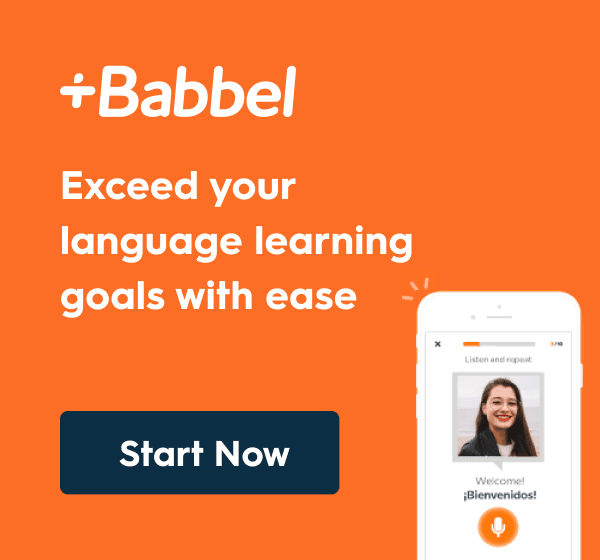The Digital Top 10 Best Language Learning Apps 2024
Learning a new language is a big and exciting project. Whether you’re learning for work, travel, or just for fun, it’s important to find the right tools to help you along. But finding the right one can feel overwhelming, especially with so many apps and resources to choose from. In this article, we highlight 10 of the best language learning apps out there to help you get started on your language-learning adventure.
What are language learning apps?
Language learning apps can help you master the key skills you need to reach fluency. Some tools focus on the building blocks of language, such as vocabulary or grammar. Others will give you access to reading, listening, or audiovisual material in your target language. To take your speaking abilities to the next level, some tools also connect you with virtual teachers for conversation classes and interactive lessons. You might need to use a few different tools to uplevel your language abilities across the major skills.
Why use language learning apps?
In the past, language learners were restricted to a few scant resources. From heavy dictionaries to dense grammar books, they were difficult to use on the go. And while in-person classes and courses still have a lot of value for learners, they can be expensive and a big time commitment. By contrast, digital language learning tools give you the opportunity to study at any time, and costs are usually much lower (or even free).
They can also bring learning to life, with multimedia resources that can make memorization and language practice much more stimulating. Many language learning tools use techniques rooted in neuroscience and educational research to ensure you’re getting the best results. There are even tools that can connect you with other learners or native speakers, making language learning less of a solitary pursuit. Even if you’re not able to visit a country where your target language is spoken, you’ll still have plenty of opportunities to engage with authentic material and practice the key skills.
What types of language learning apps are there?
When it comes to language learning apps, you’re spoiled for choice. Many apps focus on vocabulary acquisition and memorization, but how they approach this will depend on the software. Some go for a spaced repetition approach, similar to flashcards. These will help you embed vocabulary by cycling the words you’ve learned so you’re exposed to them frequently over a period of time. Others will integrate vocabulary into short phrases, sentences, or even stories, so you’re getting used to the words in context. Many apps also use game-like features to encourage you to “level up” through repeated practice.
Other apps focus on helping you navigate written or recorded audio material. Sometimes they may be presented together to help you improve your reading skills. Other tools may integrate vocabulary learning to make encountering an unfamiliar text less intimidating. There are even some solutions out there to help you watch TV shows and movies in your target language with the help of subtitles.
When it comes to speaking, there are a number of tools that encourage you to start. This can be through repeating audio material or conducting fake conversations. Some apps even have voice recognition features that will assess your pronunciation.
If you’re keen to work on your speaking and listening skills in a more natural context, there are a number of language learning tools that connect you with a virtual teacher, often a native speaker. This might be the whole focus of the tool, or it can be offered in conjunction with other features. Language lessons could come in the form of 1:1 conversation sessions or structured classes, which obviously make sure the focus is on you and your needs.
Alternatively, some apps can connect you with other learners for group lessons, which can help you learn from others’ mistakes. There are also a number of apps that can connect you with people from around the world for language exchanges, which are less formal than lessons and won’t normally cost anything.
How to choose the best language learning apps
The first thing to think about when choosing a language learning app is your budget. There are some totally free tools out there, and lots of them also have premium add-ons if you have a bit more cash to spare. Lessons with virtual teachers can be on the pricier side, but you may be able to vary the frequency of your lessons or choose a group learning option to cut the cost if needed.
You’ll also need to look into whether your chosen tool actually covers your target language, especially if you’re learning something unusual. If it does, check what level the materials are aimed at. If you’re a total beginner, a tool that offers native-level content might not be the right choice. Conversely, an app that only covers the absolute basics might help at the start, but if there’s no room for progression you might not get as much value from the tool. Some apps let you add your own material, which can help you tailor the content to your own interests, something that might give you added motivation once you get past the basics.
Selecting the particular skill you want to focus on can also guide you in choosing a tool. Perhaps you need to hone your reading, listening, writing, or speaking skills in particular. Or maybe you need to cover all four. Building a suite of tools can help you develop your language more holistically.
Finally, think about the context in which you want to learn. Apps that rely on speaking out loud might be great if you’re studying in your own room, but for learning a language on the go, a bite-sized vocabulary trainer might be more suitable. Similarly, if you have time to commit to a pre-booked virtual lesson or language exchange, these can be a great way to uplevel your speaking and listening. But if you’ve got a tight schedule, you might want to start with an app with smaller chunks of content. Or, go for one that lets you follow your regular hobbies and interests (movies, blog posts, or music) in your target language.
FAQs
When Should You Use Language Learning Software?
You can use language learning software from day 1 of your language learning project. Apps can help you build your vocabulary, start putting together sentences, and connect with native speakers. Using these tools on a regular basis can help you reach fluency faster.
How Much Does Language Learning Software Cost?
The cost of language learning software depends on the tool you choose. Some language learning platforms are totally free or operate a ‘freemium’ model whereby you pay for upgrades and add-ons. Others will have a subscription cost or one-off fee.
What Does Language Learning Software Do?
Language learning software can help you get to grips with the key skills of language mastery. Digital tools can help you learn vocabulary and grammar, build sentences, develop your reading, writing, and listening skills, or connect with virtual teachers.
.20220406094624.png)


.20220406094624.png)

















 (1).20220204092703.jpg)

